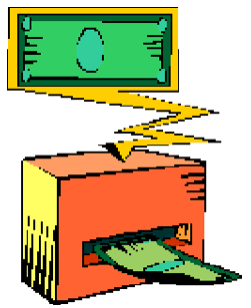The Economics of Test and Testability
What you will learn:
You will learn why and how test is a solution to an economic problem, how non-technical management views return on investment (ROI) and how to translate technical benefits to these terms. Existing formulas for the cost and benefits of IC, board, and system tests. Beyond the bread-and butter economics you will learn how behavioral economics applies to test and how we can benefit from applying it.
Abstract:
If you are serious about your test and repair investments, this course is for you. It is aimed at managers from various disciplines who are concerned with the economic impact of test on the profitability of the entire organization. Though the course discusses highly technical issues, you don’t need to be technical to keep up with the course. The aim of this class is to bring test related technical issues into an economic forum, where common return-on-investment analyses can be performed to evaluate their profitability.

Who should attend:
If you are serious about your test and repair investments, this course is for you. It is aimed at managers from various disciplines who are concerned with the economic impact of test on the profitability of the entire organization. Though the course discusses highly technical issues, you don’t need to be technical to keep up with the course. The aim of this class is to bring test related technical issues into an economic forum, where common return-on-investment analyses can be performed to evaluate their profitability.
Course Content
Introduction
- The need to economically justify test of components, boards and systems
- What classical test economics have achieved
- What behavioral economics can bring to test
Classical Test Economics
- Test Economic Decision Making
- Traditional Economic Principles
Introduction to Microeconomics and Behavioral Economics
- Why Test and Perform Design for Testability?
- Economic Benefits from Test
Equipment Reduction
Faster Test Programming
Improving Fault Coverage
Reduce Test Times
Better Diagnoses
- Economic Costs of Test
Equipment and Personnel
Penalty Cost of Escapes
Time to Market Model
- Express Savings in Terms of ROI
- Test Economics Formulas
IC Test and DFT Economics
Board Test and DFT Economics
System Test and DFT Economics
Field Support Test/DFT Economics
Test Microeconomics & Behavioral Economics
- Microeconomics
Rationality, Optimization and Utility Theory
- Behavioral Economics
Bounded Rationality to Improve Decision Making
- Inter-temporal Choice Application
Making Test Investment Decisions
- The Insurance Model
Availability Heuristics
- Anchoring
The perils of estimation.
Experiment on anchoring
- Case study
History of DFT adoption, and a behavioral economics explanation.
- The Endowment Effect
Applied to DFT Overhead
- Data Collection
Validating Test Economics Models and Decisions
Summary and takeaways
Instructors:
Dr. Scott Davidson
Scott Davidson has been involved in testing and DFT for more than 30 years, at Bell Laboratories, Intel, and Sun Microsystems. He has published more than 20 papers in areas including fault simulation, sequential test generation, Iddq and test economics. He has been involved with researching and managing fault simulation, test generation, BIST, test translation, DFT implementation, and now monitors and analyzes processor field returns. He has been program chair and general chair of the International Test Conference, the co-founder of three workshops, and the program chair of six. He has been the editor of the Last Byte column in IEEE Design & Test of Computers for 13 years. He has a B.S. from MIT, an M.S. from the University of Illinois, and a PhD from the University of Louisiana, all in Computer Science.
Louis Y. Ungar
Louis Y. Ungar, President of Advanced Test Engineering (A.T.E.) Solutions, Inc. holds a B.S.E.E. and Computer Science degree from UCLA and has completed course work towards a M.A. in Management. As a test engineer, Mr. Ungar designed automatic test equipment (ATE), created hundreds of test programs for dozens of ATEs. As a design engineer he designed payload systems for the Space Shuttle, eventually leading a team of designers. With both engineering and management experience in test and design, Mr. Ungar founded A.T.E. Solutions, Inc. in 1984, a highly respected test and testability consulting and educational firm. Mr. Ungar serves as Testability Committee Chair for the Surface Mount Technology Association (SMTA), as Consultant to the American Society of Test Engineers (ASTE), the founding President of the Testability Management Action Group (TMAG) and various test and testability groups of the Institute of Electrical and Electronics Engineers (IEEE). He has recently balloted on the IEEE-1149.1-2013 and the IEEE-1687. He also developed the Testability section of a Design for Excellence (DFX) Guideline by the IPC to be published in 2018.
Other qualified A.T.E. Solutions, Inc. instructors may teach this course.
Availability:
Onsite:
Date: Your choice
Length: 1-day
Location: Your choice
Price: Request a Quote
On-Site ConsulTraining:
Date: Your choice
Length: 2-days
Location: Your choice
Price: Request a Quote
Private Forum:
Date: Your choice
Length: 1-day
Location: San Jose, CA
Price: Request a Quote
